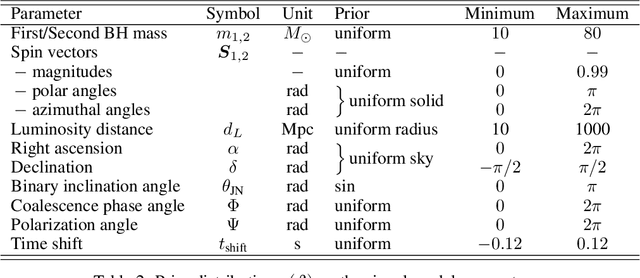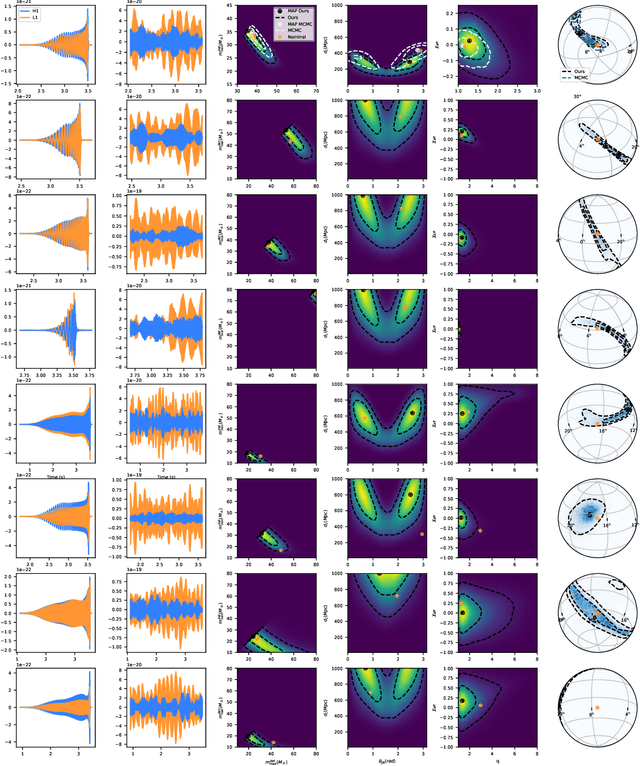Lightning-Fast Gravitational Wave Parameter Inference through Neural Amortization
Paper and Code
Nov 12, 2020



Gravitational waves from compact binaries measured by the LIGO and Virgo detectors are routinely analyzed using Markov Chain Monte Carlo sampling algorithms. Because the evaluation of the likelihood function requires evaluating millions of waveform models that link between signal shapes and the source parameters, running Markov chains until convergence is typically expensive and requires days of computation. In this extended abstract, we provide a proof of concept that demonstrates how the latest advances in neural simulation-based inference can speed up the inference time by up to three orders of magnitude -- from days to minutes -- without impairing the performance. Our approach is based on a convolutional neural network modeling the likelihood-to-evidence ratio and entirely amortizes the computation of the posterior. We find that our model correctly estimates credible intervals for the parameters of simulated gravitational waves.
 Add to Chrome
Add to Chrome Add to Firefox
Add to Firefox Add to Edge
Add to Edge